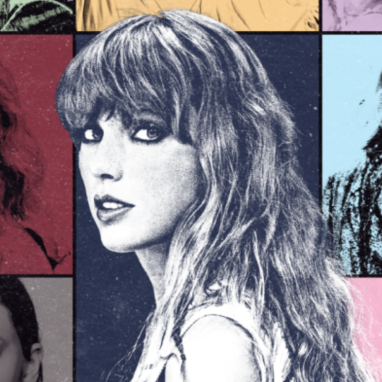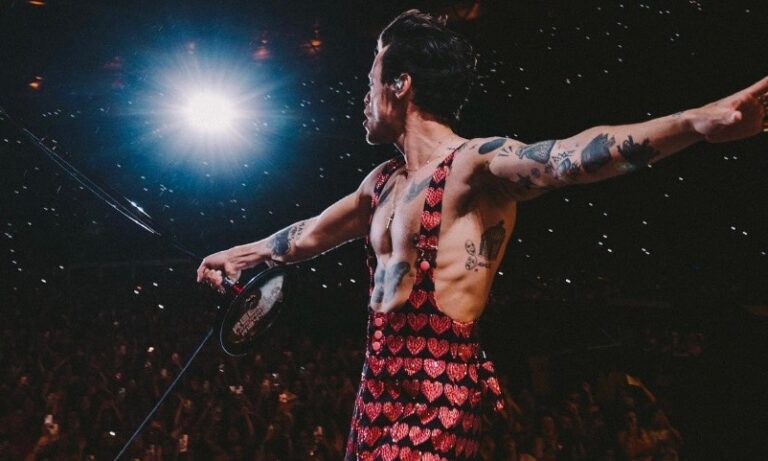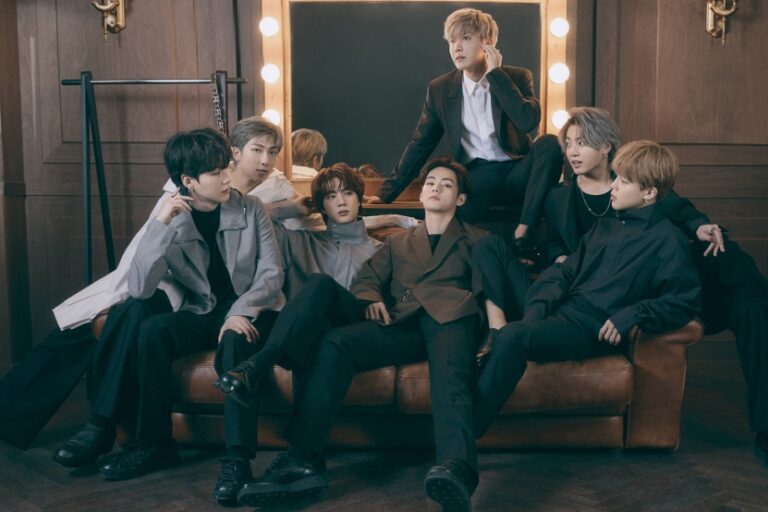Fandom as a Muse: Bebe Ashley

For poet and PhD candidate Bebe Ashley, fandom is fundamental. What began as a late-night Youtube binge during a bout of fresher’s flu became a fascination with Harry Styles that would transform her life. “I had just moved to Belfast to start my Master’s, and I ended up going down a wormhole of X Factor auditions. I started watching videos of One Direction and became immediately interested in Harry. His vocabulary was so distinctive, and he spoke in this slow drawl that I found intriguing. I entered at a weird point because One Direction wasn’t together, but Harry hadn’t released his solo music yet.” But her discovery of Styles seemed serendipitous. His debut album would be released later that year, and this would serve as a catalyst for career opportunities that Bebe could have never foreseen.
Between the introspective lyrics and striking aesthetic, Styles’ self-titled album was fertile ground for inspiration. It was during this album cycle that Ashley would begin writing the poems that would make up Gold Light Shining, her debut poetry collection published in 2020 by Banshee Press. “I never expected to have a book. I started by writing one poem inspired by Harry, and then I just kept going and finding different avenues that tangentially related to him. But the day the publishers requested the manuscript was the day that Fine Line was released. So, I felt like there was positive energy in the air, and the universe was working with me.” This sense of magic makes its way into the collection, as Bebe explores the kaleidoscopic world of ‘HS1’, from floral Gucci suits to the flickering neon lights of New York city. Bebe’s vivid rendering of Harry’s visual identity was made possible by a travel scholarship to the Met Museum in NYC, as she visited the ‘Camp: Notes on Fashion’ exhibition. “Harry had been the co-chair of the Met Gala that year, and I wanted to see what had inspired him. I was wearing a Harry Styles denim jacket and I was approached by a group of [Harry] fans, and I was able to experience all of this because of my writing.”
The collective experience of fandom is another source of inspiration for Bebe. Throughout the book, she captures the camaraderie of fans and their online communities, as they gather and bond through fanfiction, newsletters and web series’. In ‘The Crowd Are Young and Full of Tears and Snot and Sweat’, she contemplates the rich inner lives of concert-goers, speculating on what the subsequent years have in store, “Future writers / future teachers / future fathers / future dreamers”. She dislikes the media’s inclination to trivialise the interests of young women, and she admires Styles’ inherent respect for his fans. “From the start, Harry has always empowered his audiences. If you look around now to the people that are Harry fans, and One Direction fans that grew up with them, they’re the ones getting PhDs or publishing books or running successful businesses. And I just think it’s so cool that there’s this kind of thread that ties everyone together, and yet gives everyone their own opportunities and autonomy to create their own journeys,” Bebe explains.
And whilst the collection may be viewed as a tribute to the musical icon, it was important for Ashley to honour the experience of his fans. She’s keen to shirk the negative stigma attached to the term ‘fangirl’, pointing to the hardcore fans of Marvel and Premier League football, who often escape the criticism afforded to disciples of pop musicians or boybands. “I think so much of this book is about the experience of coming of age, and that key early twenties period where you’re trying to find out what is important to you and what brings you joy. For me, it was going to concerts and finding rare merchandise and importing it in from Japan. And there’s no shame in that!”
When the conversation shifts to the division between ‘high’ and ‘low’ culture in the arts, Bebe also points out that fandom in literature isn’t a new phenomenon. “There is a trend in publishing now with Sheena Patel’s I’m a Fan and books exploring fandom, but not so much in poetry. But at the same time, I really feel like the majority of poetry is fandom, but just in a way that we don’t typically understand. When we write about legacy or commemoration, that’s a form of fandom. In that way, John Keats’ ‘Ode to the Grecian Urn’ is basically a fan poem. It’s just about a Grecian urn,” she says with a smile. This is something that Bebe explores in the poem ‘Sweet Creature’, a collage-inspired work that takes the title of a song from Styles’ debut album and reappropriates lines from Act 3, Scene 3 of Shakespeare’s Othello, in which the phrase ‘sweet creature’ appears. Our discussion reminds Ashley of another fortuitous moment that occurred during the crafting of the collection. “I workshopped the poem with Ciaran Carson, who was so generous and fundamental to the early writing experience. And when he was reading it, he actually started to sing the lines. So, there was this really cool moment where I sat in a workshop and I knew that what started as a Harry Styles song, became a poem and then became a song again. I thought, “This is so perfect. This is exactly what I want.” It is my voice through the funnel of Harry through the funnel of Shakespeare.” This impulse is at the core of the collection: the act of borrowing from the work of others to create something new. Bebe’s earlier use of the word ‘legacy’ in our conversation seems pertinent here—the idea that the actions of one person can have a long-lasting impact on the lives of others across the world. One day, a boy in Cheshire auditions for a talent show, and a decade later, a young writer is travelling to the other side of the world to research for her debut book about him. Styles has a tattoo of a butterfly stretching across his abdomen, and it seems fitting—a reminder of the butterfly effect. But in a world saturated with pop music, as social media spawns a conveyor belt of emerging stars, what is it about Harry Styles in particular that captures Bebe’s attention?
“When I think of Harry, or if I hear a song on the radio or someone at work sends me a picture of him, I get an overwhelming feeling of joy. And with Harry, the marketing and branding is centred around treating people with kindness. I think that it’s key to take that message outside of the sphere of fandom and think about your role in the world. How do you want to influence other people? How do you want to treat other people? For me, the happiest times and moments on earth are listening to Harry and that shared experiences with other fans. There’s so much of writing that is so isolating. You spend so much time alone, editing and doubting yourself. But when I go to a concert, everyone is sharing the same feeling. It’s a relief.”







